3.1 Living in Whitley: Research Context
In official language Whitley is variously described as working class, disadvantaged, underprivileged, relatively poor, deprived, less affluent or in marketing terms, mostly categories C2, D and E. Conversely, Whitley is also termed a ‘community’ and this conveys warm evocations of cohesion and togetherness – something altogether desirable. Placing the two descriptors together e.g. deprived community or disadvantaged community, may appear contradictory.
The assertion here is that there is no inconsistency – our research conveys evidence of a strong community spirit but also highlights stark areas of inequality between Whitley and other areas in Reading. More generally communities such as Whitley are mostly described in the language of ‘deficiency’ – often interpreted as a catalogue of failings reflecting faults or weaknesses in the resident population. Less apparent or addressed is the failure of serving institutions or agencies – often statutory providers – to meet the challenge of internal attitudes and processes and more seriously perhaps the crushing impact of severe cutbacks at a time of austerity.
Our context, therefore, is two-fold - Whitley as the most ‘disadvantaged’ community in Reading and Whitley as a positive community.
‘Whitley’ is located to the South of Reading town centre and stretches down to the M4 between the two main roads south (the A33 and Shinfield Road)1. The popular definition of Whitley extends beyond Whitley ward itself (the southern half of this area) to include Church ward and parts of Katesgrove and Redlands. Here are some summary features of Whitley ward (Reading Borough Council, Berkshire Public Health Shared Team 2018):
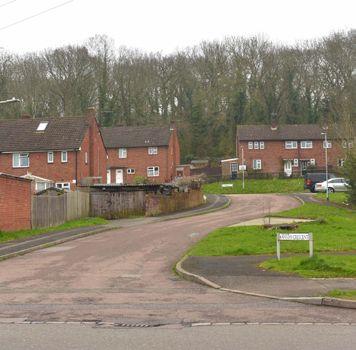
- There are 12,157 people resident in Whitley, 24.7% are children aged 0 to 15 and 10% are older people aged 65 and older (ONS population estimates 2016). The non-white British population accounts for 29.9% of the total population. 82% of the population were born in the UK which is more that the average for Reading2 .
- Of Reading’s 16 wards, Whitley is the most deprived. 31.6% of children are at risk of living in poverty compared with 18.7% for Reading3 38.2% of residents had an income after housing costs that was 60% of the median which represents some of the worst levels of poverty in Reading. Two areas within Whitley and Church wards are within the 10% most deprived in the country, according to the Index of Multiple Deprivation 2015.
- In Whitley 15.2% of the population claim benefits compared with 9.6% in Reading (2017). 63.4% of the population aged 16 to 74 years are in employment, which is lower than the average for Reading. The majority of people in employment (37% of workers) were employed in manual occupations with 17% in elementary occupations – twice the level in other parts of Reading (Census 2011).
- 30.4% of working age people in Whitley have no qualifications. For Reading, 48.2% were qualified to NVQ level 3 or higher compared with 28% for Whitley (Census 2011).
- 56.4% of children living in Reading achieved 5 GCSEs at grade A to C. The figure for Whitley is 38.9% (2016). Children living in Reading achieved the expected level of attainment at Key Stage2 at 56.4% - for Whitley the equivalent figure was 42.9% (2012).
- 22.1% of children living in Reading and attending schools in Reading are eligible for and receiving free school meals. 37.4% of children living in Whitley are eligible for and receiving free school meals. One secondary school in Whitley has 53.9% of pupils eligible for the pupil premium – the figure for Reading is 28.4% (The pupil premium provides additional funding to raise attainment of disadvantaged pupils) (EFA Pupil Premium allocations 2015/16)
- There are a total of 4,741 dwellings in Whitley – the most common type being semi-detached which accounts for 43.1% of all housing. The average household size in Whitley is 2.6 people and 8.9% of housing in Whitley is classed as needing one or more bedrooms more than it has, to be adequately sized for the number of people living there. Approximately 35% of housing in Whitley is socially rented compared to 16% for Reading. (Census 2011)
- 15.9% of adults in Whitley feel that their lives are limited to some extent due to ill-health or disability (Census 2011). An estimated 29.9% of adults in Whitley are obese and 19.1% binge drink. 26.2% of Year 6 children in Whitley are obese compared to 21% in Reading.
- 27.9% of all households in Whitley do not own a car or van (Census 2011). 72% of people in Whitley had experienced a problem with local transport and 55% of carless respondents were unable to find the transport they need. Whitley residents facing transport barriers were more likely to be women and families with dependents particularly those with up to 3 young children and living in certain Whitley areas – mainly RG2 7 postcodes e.g. Hexham or Staverton4.
These statistics present a daunting and depressing chronicle of inequality. They also reflect deep structural fissures in our society - structural inequalities may be understood as a bias built into our organisations and institutions that discriminate by gender say or social class. Whitley is by no means the most deprived or unequal among the nation’s 9,456 wards but the glaring differences evident above cry out, no less than in other areas, for attention and action. An outsider peering into Whitley through our statistical window will conclude that the residents must lead cramped and unrewarding lives. At every turn some life constraint exerts pressure, often in multiple ways – whether in employment, transport, income, health, lifestyle, education, housing or safety.
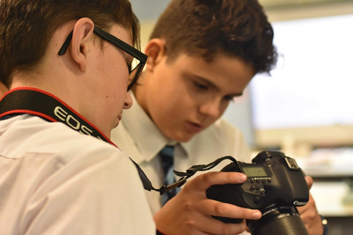
There are other more positive views of Whitley that emphasise resilience or cohesion and a tenacious capacity to ‘get by’. They are by no means universal qualities across the community not least because people often experience hardship or stress as a personal lot – they and not the inequalities outlined above are responsible; hence, some susceptibility to low self-worth.
However, there is some constructive evidence to support a more positive picture of Whitley and some of this is based on community practice known as ABCD or asset based community development. This addresses community advantages whether social, cultural or material – it’s what communities have rather than what they lack; the assets could include skills and knowledge locally, networks and connections, effective community groups and physical facilities such as community centres or community cafes5.
In 2009, Reading Borough Council, Affinity Housing and Groundwork Thames Valley conducted a neighbourhood survey in the Whitley area including Whitley Wood. The response rate was 16% or 1 322 people. 41.2% or respondents were social housing tenants. Here are some findings:
- 45% volunteered or did community work and 25.6% were members of a group, club or association. 40.5% wanted more local café access and more social clubs.
- 26.3 % agreed that Whitley was a close knit neighbourhood and 39.1% were willing to help neighbours.
- 46.2% would like to be more involved in decisions affecting their area with the caveat that this depended on the issue or concern.
- The main conclusions showed that awareness of local activities and facilities was low as was take up of local facilities. People wanted to know more about what opportunities and activities were available locally. People were also keen to engage and participate for their own and others benefit.
In 2014 the Whitley Big Local Rep conducted a survey of 69 residents in 5 locations including Stockton Rd, Hexham, Sure Start, Whitley Park primary school and Whitley library coffee groups. The survey was entitled ‘What we want and what we are good at’. What we want included:
- More support for each other and people getting to know each other – having a community, there are too many lonely people (Stockton Rd). Lots more things for young people, something for single parents and young children and get rid of druggies (Hexham). Others included better parks, improve the library, help people with depression, clear up the dog mess, more youth work.
- People also emphasised Whitley as a nice place to live, friendly, strong sense of community, everything is on your doorstep, people mostly look out for each other, it’s a diverse community, you can easily get to know people and there’s lots for baby group activities.
- What people said they were good at:
- Lots of practical matters such as cooking, driving, gardening, DIY, art and drawing, sewing, fixing bikes and scooters, child minding, learning languages, building things, cleaning and several references to singing.
- More relational matters included, encouraging others, social work, caring for others, counselling people who are ill, communicating with people, being a mum, looking after a home and family.
Our evidence underlines the adherence to aspiration in adults and young people in Whitley. However, the Index of Multiple Deprivation (2015) indicates that in ‘education, skills and training’ three areas in Whitley are in the most deprived 5% nationally. There is evidently an ‘aspiration gap’.
Further evidence5 suggests there is no direct causal relationship between aspiration and attainment. Additionally, aspirational opportunities may be wasted through circumstances and events that individuals have little control over7 – if individuals are disadvantaged through poverty and inequality this limits future hopes and aspiration.
1 The census data presented here is for Whitley ward, although local perceptions of Whitley boundaries vary and include a much wider area
2 Office of National Statistics (2011) Census Data, 2011
3 Reading Borough Council JSNA (2018) Whitley Ward Profile, Report by Berkshire Public Health Shared Team.
4Lloyd-Evans et al (2015) Working better with Whitley: exploring the everyday transport needs and experiences of local communities in South Reading. University of Reading and Whitley Big Local. Available from http://localtrust.org.uk/assets/ images/uploads/Whitley_Report_25.09.2015_FINAL_VERSION.pdf
5The WCDA community café on Northumberland Avenue has taken a central role in community development since it opened in 2015
6Carter-Wall, C. and Whitfield, G. (2012) The role of aspirations, attitudes and behaviour in closing the educational attainment gap. Joseph Rowntree Foundation
7Creegan (2008) ibid
3.2 ‘The Whitley Researchers’
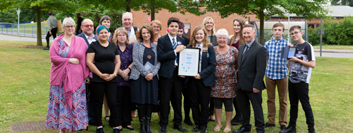
Founded in 2014, Whitley Researchers1 is a partnership between the Whitley Community Development Association (WCDA), local residents and the University of Reading to engage and involve communities in conducting their own research. We believe that communities should devise their own solutions to local issues as knowledge generation is located at community level and not just in an academic or policy domain. Top down assumptions about local communities, particularly those most disadvantaged, often miss the more relevant issues that impact on residents. We asked a couple of our researchers, Sonia and Aneta, to tell you in their own words about their experiences of doing the research. They write as follows:
A Whitley Researcher, is a local resident to Whitley who wishes to join the group to go into the community, undertake research and to make any improvements with the residents of Whitley.I am a Whitley Researcher. I have been with the Researchers since they established officially in May 2014. I originally joined to do something to get me out of the house while my children were at nursery/school. It was a flexible means of working. It also enabled me to regain my confidence after being at home with my children for a number of years.What have the Whitley Researchers done for me? It has given me a sense of purpose. I am not only a mother but I am also part of an award winning team. Over the years the personnel have changed but the principles have remained the same. It has also made me a more confident person and it has also helped me in my darkest days to know that my “family” of Researchers are there to support me. Without the community our research would be meaningless as they are the people that are there to engage with to undertake the research so we wouldn’t exist without them.Our past research included improving transport links from Whitley to Reading but also to the Royal Berkshire Hospital. After our research we, with the help and cooperation of Reading Buses re-routed a bus to enable the people of Whitley to get to the hospital by one bus instead of two. Other projects are Financial Exclusion, Decent Neighbourhood Fund and Reading Place of Culture - these projects we hope will enrich the community’s lives.Ease, Empower and Enable are our principles we apply to all our research. We would like to help ease the problem, empower the community to help themselves and enable them by helping them have the resources to undertake it.
I am a Whitley Researcher and I’ve been working on aspirations in Whitley since October 2017, mainly through questionnaires and the Aspiration Game.Firstly, being present during the whole process of creating the parent’s questionnaire felt very rewarding, I felt part of the group and went then proudly to use it. What struck me the most was the enormous faith and aspiration of parents for their children, whether primary or secondary schooled. People of Whitley believe their children do their best at school and when it comes to barriers in their future - I often heard there were none: ‘nothing will stop my child achieving their goals’. I think that’s a very powerful message and I felt inspired by it.Secondly, I’ve been privileged to accompany the Young Researchers during their Aspiration Games. I’ve watched them during their very first game at JMA, being not so confident, and needing support - to grow to confidently run the game throughout at The Palmer Academy. These young people have grown so much since I’ve met them. They are the true inspiration. They show us what you can achieve if you only want it.Lastly, I remember thinking, when I was starting, that the whole point of the research will be finding out what aspirations and dreams Whitley parents have for their children. That comes without doubt. What I didn’t expect, however, was how much I’d learn from these people, from other parents, from the Young Researchers. For which - I’m enormously grateful.
As discussed in Chapter 1, the core funding for the Whitley for Real research programme has been RBC’s Decent Neighbourhoods Initiative and the University of Reading (UoR) but a number of other organisations/institutions have supported particular strands of this research including: Study Higher, Affinity Housing Association, Reading UKCIC and Bewley Homes, John Madejski Academy (JMA), Reading Girls School (RGS), The Palmer Academy, the Whitley Excellence Cluster (WEC) and WCDA.
Whitley Researchers Team Members
- John Ord, ex Big Local Representative (Project Manager)
- Local Whitley resident researchers, that included 10 paid community staff:
- Mo McSevney (Whitley Community Development Association)
- Sonia Duval (Data and Administrative Assistant)
- Sandra Clare (Community researcher)
- Liz Ashcroft (Community researcher)
- Naomi Lee (Community researcher)
- Aneta Banas (Community researcher)
- Natalie Merritt (Community researcher)
- Katherine Cooke (Community Researcher until October 2017)
- Julia Spence (Community researcher until March 2018)
- Carla Allamby (Community researcher until September 2017)
- Dr. Sally Lloyd-Evans and Dr Lorna Zischka, from the Department of Geography and Environmental Science at the University of Reading; and 7 University undergraduate research placement/ volunteer students from 2016 to 2018:
- Abi Becker
- Olivia Cheer
- Bethany Brown
- Hayley Ryall
- Abi Brown
- Elisha Russell
- Georgia Ward
- Paul Allen from John Madejski Academy, and 10-12 young researchers from Year 9
3.3 The Whitley Young Researchers (YRs)1
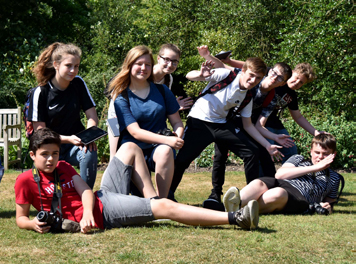
 The Young Researchers have grown from a group of students at the John Madejski Academy who have an active interest in photography. The opportunity to pursue this interest has been important for this group. It has meant that they have been willing to pursue the initial requirements of the research, most of it in their own time after school on a Friday because there has always been a positive reason for their involvement. Previous attempts to form a Young Researchers group without this approach were unsuccessful. Nevertheless a key turning point in the success of the Young Researchers was the agreement from the school in the following year that what they would be involved with would take place during school time and not as an addition to their school day. From that time on the Young Researchers met for 1 hour per week on a rolling timetabled basis. This meant that time could be given to plan and develop events such as the Community Panel and the Aspiration Game event (see Figure 3.1).
The Young Researchers have grown from a group of students at the John Madejski Academy who have an active interest in photography. The opportunity to pursue this interest has been important for this group. It has meant that they have been willing to pursue the initial requirements of the research, most of it in their own time after school on a Friday because there has always been a positive reason for their involvement. Previous attempts to form a Young Researchers group without this approach were unsuccessful. Nevertheless a key turning point in the success of the Young Researchers was the agreement from the school in the following year that what they would be involved with would take place during school time and not as an addition to their school day. From that time on the Young Researchers met for 1 hour per week on a rolling timetabled basis. This meant that time could be given to plan and develop events such as the Community Panel and the Aspiration Game event (see Figure 3.1).
As the group’s understanding of their role developed the Young Researchers became increasingly confident with gathering research material from groups that are sometimes quite difficult to reach. One example during the Aspiration Day event involved writing a questionnaire for teaching staff, canvassing staff and providing the research team with the completed documentation within a couple of hours. In addition to their growing research skills, outside groups and individuals have been able to visit the group on a regular basis for discussions and questions about ideas and plans they have. This has been done in both formal and informal settings. In addition to this the Young Researchers have been able to visit other community groups and schools in order to work on aspects of the research programme. The work of this group is continuing to evolve as their role within the school and the Whitley community develops.
1 In addition to the core DNF funding, the Whitley Young Researchers programme has received additional funding (financial and ‘in kind’) from Study Higher, the University of Reading and John Madejski Academy.
3.4 Our Research Journey
As discussed in Chapter 1, our research adopts an iterative, participatory methodology to exploring issues around youth aspirations, school-parental relationships and transitions to higher education, training and work. Participatory research recognizes the importance of actively engaging local communities in the research process so that projects are run with communities rather than about them1. We also aimed to build collaborations between residents, researchers and institutions that would help facilitate new community partnerships for the future.
Our approach aimed to empower communities to co-create and manage the research design, analysis and identify recommendations in collaboration with the schools, RBC and other partners. The Whitley Researchers collective believes that the ‘research journey’ is as important as the knowledge we gather and research has shown how community driven qualitative research can help to empower residents and local organisations to develop coping strategies, resilience and more creative initiatives for tackling poverty and social exclusion2.
We co-produced our methodology with participants, partners and stakeholders over a sustained period of time (18 months). Regular meetings with the W4R Steering Group, Chaired by RBC’s Chris Bloomfield and Jill Marston, and South Reading Cllrs provided oversight and support for the research. In order to unpack and explore the attitudes and experiences around aspiration and education in Whitley, the research had five main objectives, outlined here:
- Co-produce a participatory research project with young people, schools and parents that equips all participants with new skills, confidence and research experience.
- Engage local people in a co-produced, qualitative research programme that seeks to explore, understand and share the attitudes, experiences and feelings held by young people, schools and parents around youth aspirations and transitions to work, further education and future lives.
- Develop a better understanding of the links between young people’s future aspirations, transitions and parental engagement with schools in order to identify strategies to enhance working relationships and engagement.
- Facilitate a participatory partnership between students, parents, primary and secondary schools, and the wider community, to develop a set of recommendations that aims to inspire higher student attainment and empowers them to aspire to further education, vocational training, volunteering and community engagement.
- By facilitating communication between the relevant parties, social connections are created through which actions for change can subsequently be channelled.
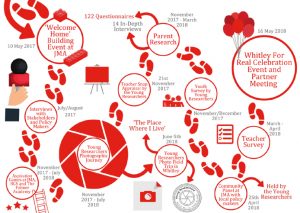
Figure 3.1 – Our Research Journey
In order to meet these objectives, our co-produced research includes both quantitative and qualitative techniques and Figure 3.1 illustrates the key strands of our multi-method research journey. Further details on the methodology and outcomes of each strand follow with further detail available in a series of individual reports3.
Home Building Event (10th May, 2017)4
Aims: This is where our research journey commenced – as so many life journeys begin – at home. JMA students (later to become Young Researchers) discussed and then constructed their conception of an ‘ideal’ home from giant blocks. They engaged a group of young people attending JMA to build an innovative ‘home’ using the blocks to generate a greater and explicit awareness of the place of home in a wider community, establish a core group of young researchers and develop team working skills.
The Method: A partnership of several agencies including JMA staff and students, Whitley Researchers, University of Reading and UKCIC and Bewley Homes supported a group of 12 JMA students as they planned and constructed their ‘ideal’ home out of 1500 large blocks. This happened on the 10th May in a sheltered but open location on the JMA campus. In a single day the home was planned, constructed and dismantled. A productive relationship was established between school, university, community and a local building company – this resulted in closer links between these agencies.
The event emphasised the importance and the value of taking a risk with innovative activities beyond the traditional methods of quantitative research to generate by young people themselves a more qualitative approach. It also helped launch the wider aspiration research project as the young team of builders approached their peers and investigated their ideas and understanding of aspiration.
Interviews with Key Community Stakeholders
(July/August, 2017)
Aims: To interview key stakeholders and policy makers associated with the Whitley for Real partnership to gain insight into issues in Whitley and find out what information they might want to get from the DNF research to inform future service delivery and engagement with the local community.
The Method: Two University of Reading interns32, Hayley Ryall and Bethany Brown, supported by University and Reading Borough Council staff interviewed nine representatives of Whitley for
Real partners in the summer of 2017 to explore barriers and opportunities to community and individual aspiration.
Key recommendations included the need to increase engagement between schools and parents and improve careers advice for both students and parents.
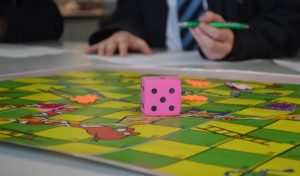
Youth Aspirations: Playing the Aspiration Game
(September 2017 – March 2018)
Aims: To launch the Young Whitley Researchers in their role of discovery and communication, exploring the subject of youth aspirations with a wider group of JMA students in a way that was both thought-provoking for the participants, and informative for the researchers.
The Method: The Young Whitley Researchers33 in collaboration with Whitley Researchers, JMA staff and the University of Reading prepared a game based on snakes and ladders – the Aspiration Game. On 21st November, other JMA students were invited to play this game, which provided the basis for conversation about things that help the students’ forwards in life, things that hold them back, and about aspirations more generally. The Aspiration Game was also played with Year 8’s from Reading Girls School on the 14th March 2018 and with The Palmer Academy’s School Council on the 23rd March 2018.
The Young Researchers also documented their journeys through photography and film. The game provided insights into the centrality of supportive family, school and friendship networks, the effects of school pressures and how the young people wanted to find their own voice.
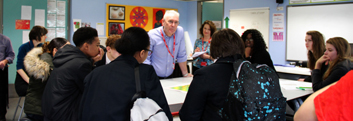
Teacher Snap Appraisal
(21st November, 2017)
Aims: This was a spontaneous research event initiated and designed by the Young Research team during the lunch break. The concentration in the morning sessions on their peers’ aspirations led in feedback discussion to curiosity about their teachers aspirations.
The Method: The Young Researcher team quickly devised a questionnaire, shared this with the University and Whitley Researchers present and sallied forth to find teachers to interview. At least 15 teachers answered a series of questions about their own aspirations and what influenced them; the helps and hindrances they encountered and their views of JMA student aspirations.
Parent Research
(November 2017 to March 2018)
Aims: To explore parents’ attitudes towards school-family relationships, understand their aspirations for their children’s future lives and identify opportunities/barriers that might be addressed through wider community initiatives.
The Method:
- 122 parents from primary and secondary schools were interviewed by the Whitley Researchers using a semi-structured questionnaire with a view to understanding their relationship with their child’s school and the aspirations they have for their children (see Appendix 1). The Whitley Researchers piloted and redesigned the survey with help from the Whitley Excellence Cluster (WEC)8 before it was launched in November 2017 around schools and community events. The lively (sometimes fraught!) discussions in our research meetings have highlighted the strength of feeling and raw emotions that are exposed when parents are asked to talk about their children, schools and future hopes and fears.
- The team also undertook 14 in-depth qualitative interviews with local parents (11 mothers and 3 fathers).
Parents are aspirational and they place great store on school approachability and school-home communications.
Youth Survey
(January to March 2018)
Aims: To explore younger people’s attitudes to school, thoughts for the future and barriers to progress.
The Method: With help from the Young Researchers, 38 students from Whitley’s two secondary schools (JMA and RGS) were interviewed using a semi-structured questionnaire format (see Appendix 2).
The results present a telling picture of the pressures, anxieties and optimism young people have about their future life chances, the need for good relationships with people who believe in them and the greater support that is needed to navigate pathways to work, training or higher education.
Teacher Survey
(April 2018)
Aims: To understand teachers’ thoughts on student aspirations and child development in Whitley, reflecting also on the role of the school and of parents.
The Method: 38 primary and secondary school staff members completed questionnaires (see Appendix 3). The questions were framed in such a way that their responses could be compared and contrasted to the responses of parents and children.
The dedication of teachers towards their pupils came through, with some important ideas for how school provision may be improved.
Community panel
(25th April 2018)
Aims: To explore how the wider community in Whitley community might offer a better future for its young people.
The Method: A panel of 10 representatives of local agencies responded to questions from the Young Researchers on how local service agencies and the Whitley community might address the hopes and aspirations of its young people. The event used a ‘Question Time’ format designed and facilitated by the Young Researchers at JMA. A wider audience of community members were also given the opportunity to participate in the discussion.
The recommendations that were put forward reflected a real will to collaborate for the betterment of Whitley community.
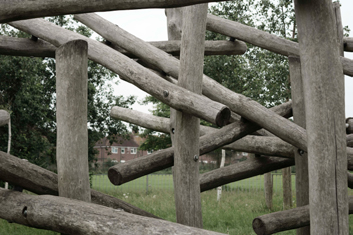
Whitley for Real Partner meeting and celebration event: reflecting on emerging themes
(16th May 2018)
Aims: The Whitley for Real partnership led this collaborative celebration event to consider the latest research findings with a focus on generating firm conclusions as a foundation for action planning.
The Method: the Young Researchers and the Whitley Researchers talked of their personal development during this research process, and highlighted their understanding that supportive relationships between people are key to change.
This event again brought diverse players into one room for a common purpose, helping to form the relational networks through which change can take place. Members of Whitley’s less well- heard social groups were able to voice their points of view. Positive and direct communication is important in counteracting stigma and negative commentary, and helps to create a collaborative environment.
1 Kindon, S., Kesby, M. and Pain, R. (2007) Participatory action research approaches and methods: Connecting people, participation and place. Routledge: London and New York. Lloyd-Evans, S. (2016) Focus groups, community engagement and researching with young people. In Evans, R. and Holt, L. (eds) Methodological Approaches: Geographies of Children and Youth 2. Springer: Singapore.
2Darby, S. (2017) Making space for co-produced research impact: learning from a PAR case study, Area 49 (2), 230-237
3Reports available from Sally Lloyd-Evans, Associate Professor in Human Geography, University of Reading via [email protected]
4‘A Welcome Home Report’ is available on request from Sally Lloyd-Evans. The event was funded by Reading 5UKCIC, Bewley Homes and UoR’s Participation Lab
6Funded by the University of Reading’s Undergraduate Research Opportunity Placement Scheme
7The Young Researchers programme received additional funding from Study Higher from January 2018
8WEC Head teachers’ provide helpful comments on our questions and helped the Whitley Researchers access parents in some schools.
3.5. Conclusions
This chapter has provided background on the geographical context of South Reading and outlined the diverse methods that we used to explore the theme of ‘aspirations’ and understand the connections between schools, families and the wider community. As the next four chapters will reveal, we believe that relationships between these different spaces are key to understanding how youth aspirations are shaped and reinforced in South Reading.

